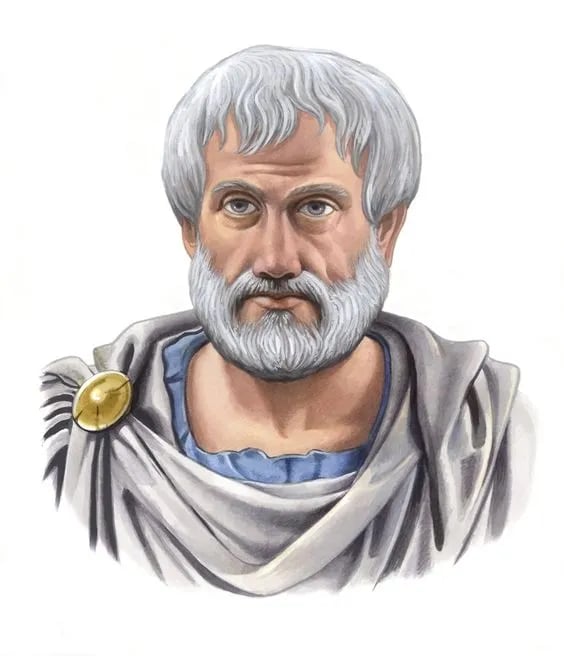UPSC Optionals PSIR: Everywhere, inequality is a cause of revolution - Aristotle. Comment. (15M – 2017)
Can inequality bring down a state? Aristotle believed so. One of the greatest minds in political philosophy, Aristotle analyzed the root causes of revolution and emphasized that justice and equality are key to a stable polity. In this post, we delve into Aristotle's theory of justice, his explanation of revolution, and the relevance of these ideas in the modern political landscape, including examples from history and contemporary movements. A must-read for aspirants of UPSC Mains GS2 and PSIR Optional!
PSIR
7/26/20252 min read


🧠 Aristotle: Justice as Harmony, Inequality as Danger
In Politics, Aristotle defines revolution as any change in constitution or ruling authority, whether big or small. He agrees with Plato that justice is a central virtue, both at the level of individual character and statecraft.
However, unlike Plato’s idealism, Aristotle's justice is practical and distributive:
“Equals should be treated equally, unequals unequally according to a rational principle.”
He endorses a natural social hierarchy—some are born to rule, others to obey. But even within this belief in inequality, he warns: perceived injustice and imbalances in wealth, power, and representation can lead to revolution.
⚠️ How Perceived Inequality Leads to Revolution
Aristotle holds that humans are political animals, and when they sense systemic injustice, their natural reaction is resistance.
✳️ General Causes of Revolution:
Political inequality (disproportionate power in few hands)
Economic deprivation and wealth gaps
Electoral corruption and intrigues
Disloyal persons in office
Disregard for merit or virtue in governance
📍 Modern echoes:
French & American Revolutions (18th century) – reaction to aristocratic privilege
Russian & Chinese Revolutions – redistributive demands amid inequality
Arab Spring – against autocracy and elite control
Occupy Wall Street – frustration with 1% elite
Black Lives Matter – social inequality and racial injustice
Anti-colonial movements – political & economic subjugation
💡 Ted Gurr argues it’s relative deprivation, not absolute poverty, that leads to revolution.
🏛️ Specific Causes in Different Regimes (As per Aristotle):
1. Monarchy – Revolutions happen due to family feuds and disputes over succession.
2. Oligarchy – Caused by conflicts among elites and oppression of the masses.
3. Aristocracy – Triggered by increasing wealth gaps and arrogance of the ruling class.
4. Democracy – Falls due to rise of demagogues and ignorance among the masses.
🛠️ Solutions: How to Limit Revolutionary Tendencies
Aristotle proposes political moderation and institutional balance:
✅ 1. Mixed Government (Polity)
Blend of oligarchy (wealth) and democracy (freedom)
Encourages representation without excess
✅ 2. Rule of Law
Laws must be applied equally and fairly
Reduces arbitrariness and public resentment
✅ 3. Ethical Leadership & Education
Cultivation of virtue and civic morality
Trained citizenry can prevent extremism
✅ 4. Preventive Governance
Just distribution of resources and recognition of merit
Public service driven by common good, not private gain
📌 Modern Parallels:
John Locke – Government must protect rights or be overthrown
Electoral democracy – adds legitimacy to state power
#MeToo, LGBTQIA+, reproductive rights movements – peaceful ways of asserting equality
🧩 Critical Perspectives
🛑 Not just inequality: Revolutions also driven by religion, ideology, repression, and external interference (e.g., Middle East proxy wars).
🛑 Inequality as natural: Classical liberals argue that outcomes differ due to effort, talent, and risk-taking.
⚠️ Aristotle not a radical: As per Glenn Sandy, Aristotle wasn't a champion of revolution. He preferred stability and saw revolution as a last resort when political virtue collapses.
📍 E.g., Chipko Movement → Forest Rights Act 2006: Change without revolution
🔍 Conclusion: Justice, Stability & Aristotle’s Enduring Wisdom
Aristotle’s insights on justice and revolution remain deeply relevant. In an age of global inequality, his warning rings true:
Unchecked injustice breeds unrest.
By creating just laws, mixed governments, and ensuring equal opportunities, states can avoid revolutionary breakdown and foster long-term stability.
Modern democracies that adapt inclusive policies—addressing economic gaps, representation, and civil rights—demonstrate how Aristotle’s preventive measures can still work today.
Justice isn't just about balance—it’s about belief in fairness. When that belief erodes, even stable regimes may tremble.